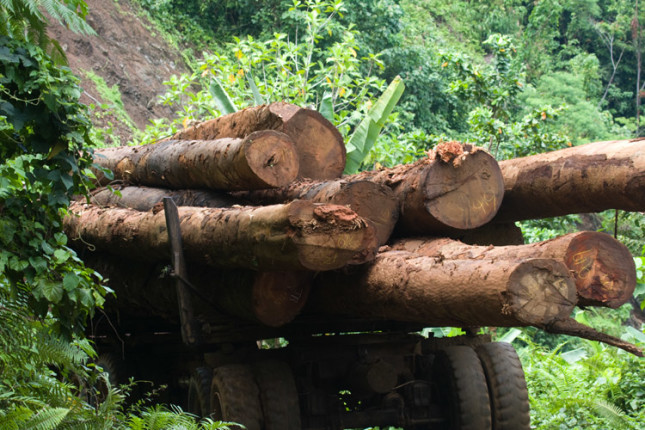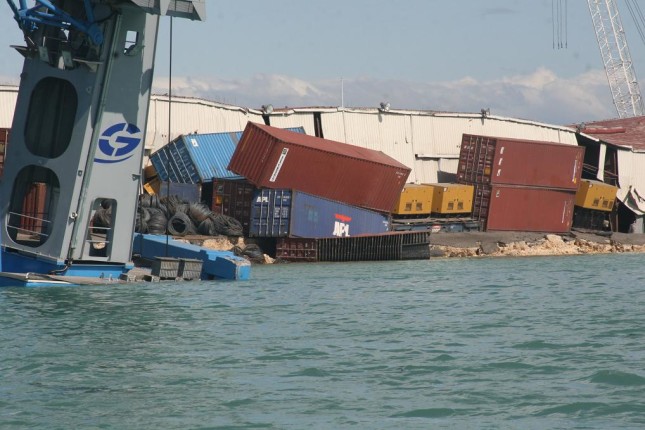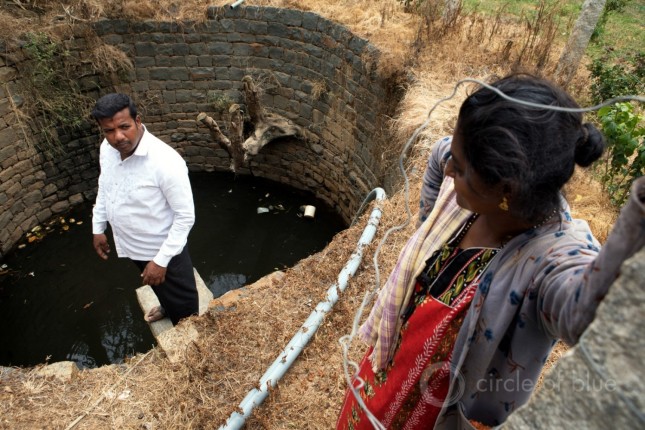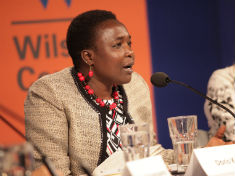-
Caring for Others is Making Women Ill. What Can Government Do?
›
Whether it’s thanks to shouldering the majority of unpaid care work, or facing poor conditions in their roles as paid carers, women laboring in the care economy face serious threats to their health.
-
China’s Demand for Raw Materials Harms Communities Around the World
›
The Solomon Islands’ “commercially available forests will be gone in about 15 years” due to deforestation, said Lela Stanley, a Policy Advisor for Global Witness’ Asia Forests team at the Wilson Center’s recent China Environment Forum event. It looks like they are logging about 20 times faster than they should for the logging to be sustainable, she added. While timber from the islands is exported to China—the world’s largest importer and consumer of timber products—local residents and communities bear the brunt of the environmental cost of lost ecosystem services suffered at the hands of the timber trade. And they aren’t alone. China’s insatiable demand for raw materials and its harmful resource extraction practices wreak havoc on the ecosystems of its many producer countries.
-
Ken Conca on Transboundary Water Basin Management
›Friday Podcasts // Water Stories (Podcast Series) // January 18, 2019 // By Linsey Edmunds & Truett Sparkman “When we start talking about water in the context of security, we’re immediately drawn to a conversation about conflict. And that’s often framed in terms of scarcity of water and a real zero-sum game around water, where scarcity begets grievances, which beget instability and conflict,” says Ken Conca, Professor at American University’s School of International Service, in this week’s Water Stories podcast. Of the world’s 276 transboundary water basins, fewer than half are governed by an agreement or accord that allocates use of the shared water between countries—and less than a quarter of these accords include all the riparian states in a basin.
“When we start talking about water in the context of security, we’re immediately drawn to a conversation about conflict. And that’s often framed in terms of scarcity of water and a real zero-sum game around water, where scarcity begets grievances, which beget instability and conflict,” says Ken Conca, Professor at American University’s School of International Service, in this week’s Water Stories podcast. Of the world’s 276 transboundary water basins, fewer than half are governed by an agreement or accord that allocates use of the shared water between countries—and less than a quarter of these accords include all the riparian states in a basin. -
The Top Dot Mom Posts of 2018 from the Maternal Health Initiative
›
The five most read posts from the Wilson Center’s Maternal Health Initiative team illustrate how inextricably linked women’s health is to every other aspect of society. Our most popular posts cover maternal and child mortality, faith based engagement in family planning, maternal health in areas of conflict, family planning and the economy, the impacts of caregiving, and Cancer in India.
-
Disaster Relief Law Updated to Enhance Resilience of Critical Infrastructure
›
Until recently, if a natural disaster destroyed or damaged critical infrastructure, U.S. disaster relief law generally required it to be replaced or rebuilt in a “substantially similar” manner. This requirement made no sense for several reasons. In some cases, old, outdated infrastructure no longer exists, so replacing it in the same manner would be difficult, if not impossible.
-
Groundwater Scarcity, Pollution Set India on Perilous Course
›
Doula Village lies 55 kilometers (34 miles) northeast of New Delhi on a flat expanse of Uttar Pradesh farmland close to the Hindon River. Until the 1980s Doula Village’s residents, then numbering 7,000, and its farmers and grain merchants, thrived on land that yielded ample harvests of rice, millet, and mung beans. The bounty was irrigated with clean water transported directly from the river, or with the sweet groundwater drawn from shallow wells 7 meters (23 feet) deep.
-
Doris Kaberia on Public-Private Partnerships and Holistic Approaches to Water Management in Kenya
› “You cannot separate water and health,” says Doris Kaberia in this week’s Water Stories podcast. “People need safe drinking water for them to be healthy.” Kaberia works with Millennium Water Alliance, a coalition of international NGOs working on water sanitation and hygiene around the world, where she manages a Kenyan water program.
“You cannot separate water and health,” says Doris Kaberia in this week’s Water Stories podcast. “People need safe drinking water for them to be healthy.” Kaberia works with Millennium Water Alliance, a coalition of international NGOs working on water sanitation and hygiene around the world, where she manages a Kenyan water program. -
More Countries Want to Invest in Caring. Here’s How They Should Do It
›
At long last, my husband and I are empty-nesters. We have always worked in high-pressure jobs, and while the children were young, I put in plenty of non-work hours to care for them and for the household. My husband was unfailingly helpful, but now that our children are grown, I’m ready to renegotiate our “to do” list.
Showing posts from category featured.



 “When we start talking about water in the context of security, we’re immediately drawn to a conversation about conflict. And that’s often framed in terms of scarcity of water and a real zero-sum game around water, where scarcity begets grievances, which beget instability and conflict,” says Ken Conca, Professor at American University’s School of International Service, in this week’s Water Stories podcast. Of the world’s 276 transboundary water basins, fewer than half are governed by an agreement or accord that allocates use of the shared water between countries—and less than a quarter of these accords include all the riparian states in a basin.
“When we start talking about water in the context of security, we’re immediately drawn to a conversation about conflict. And that’s often framed in terms of scarcity of water and a real zero-sum game around water, where scarcity begets grievances, which beget instability and conflict,” says Ken Conca, Professor at American University’s School of International Service, in this week’s Water Stories podcast. Of the world’s 276 transboundary water basins, fewer than half are governed by an agreement or accord that allocates use of the shared water between countries—and less than a quarter of these accords include all the riparian states in a basin.


 “You cannot separate water and health,” says Doris Kaberia in this week’s Water Stories podcast. “People need safe drinking water for them to be healthy.” Kaberia works with Millennium Water Alliance, a coalition of international NGOs working on water sanitation and hygiene around the world, where she manages a Kenyan water program.
“You cannot separate water and health,” says Doris Kaberia in this week’s Water Stories podcast. “People need safe drinking water for them to be healthy.” Kaberia works with Millennium Water Alliance, a coalition of international NGOs working on water sanitation and hygiene around the world, where she manages a Kenyan water program.


